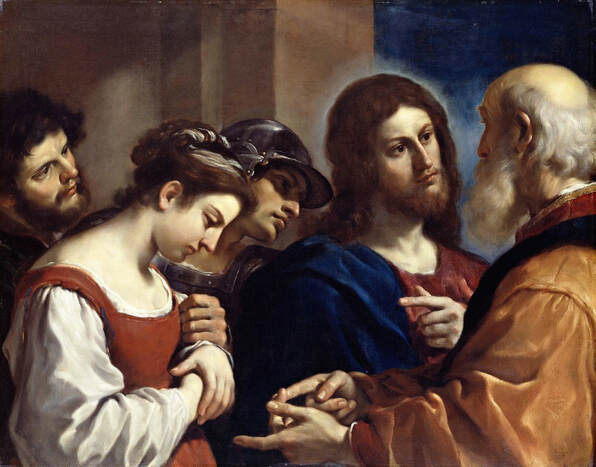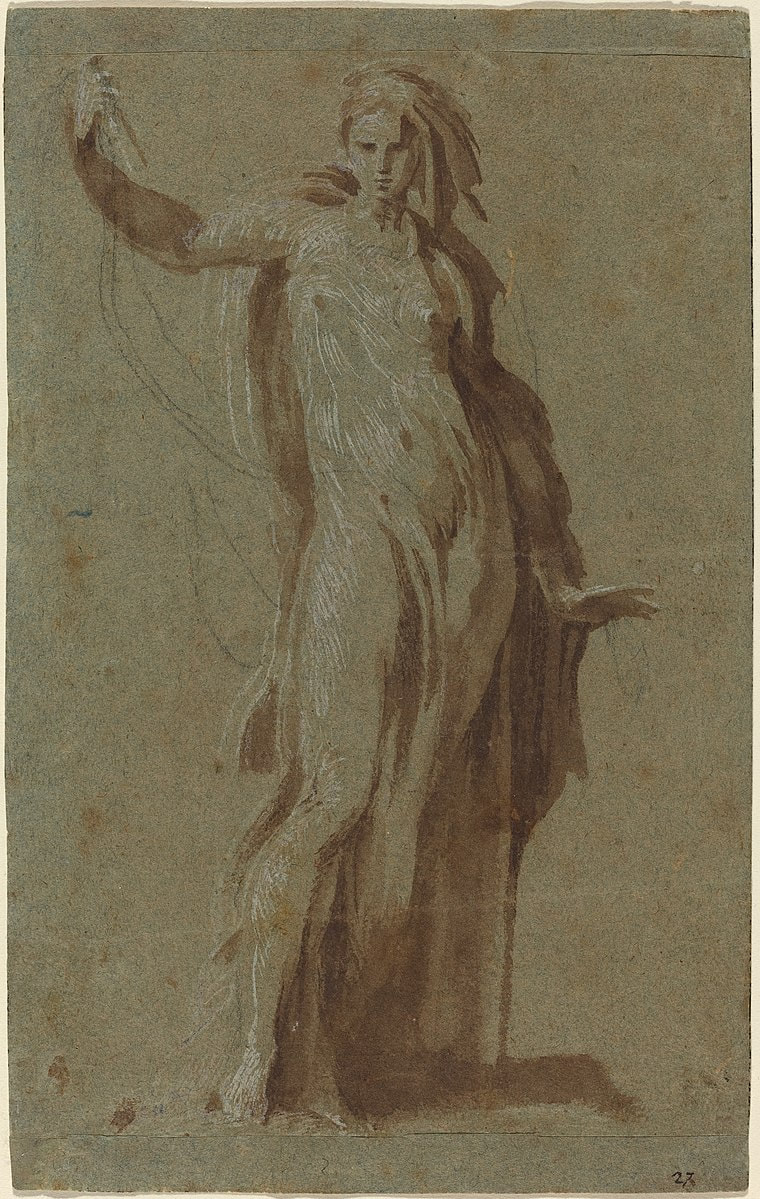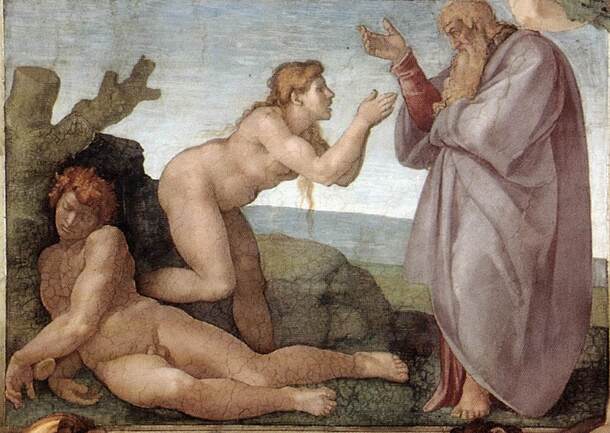ENN New Voices: The Political Philosophy of Frederick Douglass: Interview with Phil Yaure10/31/2022 In this episode, Olivia speaks with Phil Yaure – assistant professor of philosophy at Virginia Tech University – about the political philosophy of Frederick Douglass. Douglass was born into slavery, but eventually became one of the most influential black abolitionists of the 19th century after escaping his enslaved condition and learning to read and write. Phil’s research focuses on Douglass as a political philosopher, with special concern for Douglass’s conception of the US constitution as an anti-slavery document and his belief that citizenship is a function of one’s contribution to a polity (in contrast to thinking of citizenship as a status that is conferred upon someone by the powers of the state). Phil argues that Douglass considers abolitionist resistance itself to be a way of contributing to American society, which leads to the conclusion that enslaved people fighting against the injustice of slavery make themselves American citizens in doing so. We also discuss the philosophical value of the autobiography genre, and Phil offers listeners some recommendations for where to begin if they want to incorporate Frederick Douglass into their history of philosophy courses.
Further Reading Autobiographies: Narrative of the Life of Frederick Douglass (by Douglass, originally published 1845) My Bondage and My Freedom (by Douglass, originally published 1855) The Life and Times of Frederick Douglass (by Douglass, originally published 1881 and revised 1892) Incidents in the Life of a Slave Girl (by Harriet Jacobs, originally published 1861) Select Speeches by Douglass: “The Free Negro’s Place is in America” (delivered 1851) “What to the Slave is the Fourth of July?” (July 5 Speech) (delivered 1852) “Claims of our Common Cause: Address of the Colored Convention held in Rochester, July 6-8, 1853” (delivered 1853) Other Sources Mentioned: Dred Scott v. Sanford (1857) Birthright Citizens, Martha S. Jones (Cambridge University Press, 2018) Immigrants and the Right to Stay, Joseph H. Carens with Deborah Chasman (MIT Press, 2018) Immigration and Democracy, Sarah Song (Oxford University Press, 2019) To listen to this episode, please visit our podcast page.
0 Comments
In this episode, Haley Brennan speaks with Dalitso Ruwe, Assistant Professor of Black Political Thought at Queen’s University, about his project of locating and understanding genealogies of Black and African philosophy. We talk about 18th century ontological and Biblical arguments against slavery, the relationship between practical and intellectual revolutions, and what it means to disrupt a system. We also discuss the value of each person’s own philosophical genealogy, and how to find philosophical content in a text. This episode is the first of a series of interviews with New Narratives Postdocs, past and present.
Select Bibliography Frederick Douglass, “Letter from Frederick Douglass to his old master: extracted from the ‘North star’." The Derrick Bell Reader, edited by Richard Delgado and Jean Stefancic. James W. C. Pennington, The Fugitive Blacksmith: or, Events in the History of James W. C. Pennington, Pastor of a Presbyterian Church, New York, Formerly a Slave in the State of Maryland, United States Negro Orators and their Orations, edited by Carter G. Woodson. Lift Every Voice: African American Oratory, 1787-1901, edited by Philip S. Foner and Robert Branham. Early Negro Writing, 1760-1837, edited by Dorothy Porter. Angela Davis, Abolition Democracy: Beyond Prisons, Torture, and Empire. John Henrik Clarke, Critical Lessons in Slavery and the Slave Trade: Essential Studies and Commentaries on Slavery, in General, and the African Slave Trade, in Particular. Elizabeth McHenry, Forgotten Reader: Recovering the Lost History of African American Literary Societies To listen to this episode, please visit our podcast page. In Paternal Tyranny, “Book Two,” Tarabotti argues against the belief that women are to blame for adultery. She describes this view writing,
"With artful casuistry, you spread it around that adultery is more justly condemned and punished in the wife than the husband on three counts: the damage done to the husband’s honor; the possibility of inheritance by illegitimate sons; and the threat to the safety of the husband’s life (since the adulterer supposedly kills her husband to protect his own life and allow himself greater freedom to sin). But these are not reasons; they are the ravings of evil, unbridled thoughts to allow yourself greater freedom to commit crimes without fear of reproof." (110) Tarabotti carefully responds to each claim outlined above. She begins by arguing against men who claim that women endanger the honor of their husbands when they commit adultery. Tarabotti uses the sexist reasoning of men which says that only they can bestow honor onto another to show that women, in turn, cannot hurt the honor of their husbands through adultery. She writes, “First you claim that a woman of base lineage who marries into a noble family cannot lower her husband’s status, just as a noble lady cannot raise the status of a commoner whom she marries” (111). Tarabotti argues that if a woman does not hold the power to raise or diminish the status of her husband in marriage, then, even if she commits adultery, she still cannot affect her husband’s honor. She concludes, “a woman’s dishonorable conduct… cannot bring dishonor to a house, but rather it is the man’s defects, the same man who boasts of dispensing honors to others” (111). Here, Tarabotti appeals to men’s “own weapons,” or reasoning, to defend women against unjust charges in adultery (111). Tarabotti then responds to the second claim: that women are to blame for illegitimate children and the loss of rightful inheritance. Tarabotti stresses that men are also to blame for their participation in adulterous acts. Addressing men, she writes, “for without your participation and your intrigues, illegitimate children would not be born, whose inheritances you usurp” (112). Tarabotti reframes the problem of illegitimate children as a result of men seducing women to usurp the legacy of rightful heirs. She quickly responds to the third claim, that adulterous women endanger the lives of their husbands, by referencing the story of King David and Bathsheba. In the biblical story, King David impregnates Bathsheba who is married to Uriah. Tarabotti asks her reader to “remember that it was… King David who, unknown to Bathsheba, had her husband Uriah killed” (112). She argues that King David was the direct cause of Uriah’s death, not Bathsheba who was unaware of King David’s actions. Again, Tarabotti calls her audience to recognize that women do not act alone in adultery. Finally, Tarabotti claims that the “double sexual standard” held against women in adulterous affairs opposes teachings of the Catholic church (113). She argues that “throughout the Scriptures, male and female are on equal footing when it comes to marital legislation” (113). Tarabotti references Saint Paul as an advocate of women and her views. She writes, “listen to Saint Paul agreeing with me on the reciprocal obligations between husband and wife: ‘If any brother hath a wife that believeth not, and she consent to dwell with him, let him not put her away. And if a [believing wife] hath a husband that believeth not, and he consent to dwell with her, let her not put away her husband’ (1 Cor 7:12-13)” (113). Tarabotti argues that by using the adjective “believing” to describe the wife and not the husband, Saint Paul “appreciates women’s naturally Catholic soul and sides with it” (113). Tarabotti uses Saint Paul to argue that, as seen in Catholicism, men and women should be held to the same standards in marriage. Tarabotti underlines the shared participation between men and women in adulterous acts and argues that blaming only women opposes Catholic teaching and contradicts other misogynist views held by men. Within this argument, Tarabotti showcases her ability to reconstruct opposing arguments and tactfully respond to each claim while utilizing important texts and impressive reasoning. --MP Source info: Paternal Tyranny. Edited and translated by Letizia Panizza. The University of Chicago Press, 2004. Image info: The Woman Taken in Adultery. Guercino. Italy, 1621. Source: https://artvee.com/dl/the-woman-taken-in-adultery-2/ In “Book Two” of Paternal Tyranny, Tarabotti argues that women should receive an education equal to that of men. She writes: "Do not scorn the quality of women’s intelligence, you malignant and evil-tongued men! Shut up in their rooms, denied access to books and teachers of any learning whatsoever, or any other grounding in letters, they cannot help being inept in making speeches and foolish in giving advice. Yours is the blame, for in your envy you deprive them of the means to acquire knowledge. As Socrates said in Plato’s Symposium, women do not lack intellect or a natural disposition to succeed in every understanding and every kind of learning equally to men." (99) In advocating for equal education, Tarabotti first establishes that intelligence is not an intrinsic quality. She argues that all learned men became intelligent only through receiving an education: “All philosophers and men of learning have gained their knowledge by studying; nobody was ever born with infused wisdom” (97). She references Plato’s Symposium to argue further that both men and women share a similar disposition to learn. In asserting that women share this disposition to learn with men, Tarabotti refutes the argument that women are naturally less intelligent than men and as a result, less worthy of an education. She argues that women do not “lack intellect or a natural disposition to succeed in every understanding and every kind of learning equally to men” (99). Instead, women lack access to the kind of education that make men intelligent. Tarabotti highlights the way men inhibit women from receiving a proper education. She describes the hypocrisy of men who “while reproaching women for stupidity…strive with all [their] power to bring them up and educate them as if they were witless and insensitive” (99). Tarabotti criticizes men who treat women as if they were naturally less intelligent and use this prejudice as reason for providing women with inadequate education or no education at all: “[Men] give [women] as a governess another woman, also unlettered, who can barely instruct them in the rudiments of readings, to say nothing of anything to do with philosophy, law, and theology. In short, they learn nothing but the ABC, and even this is poorly taught” (99). Tarabotti argues that even when a woman does receive an education, she receives her instruction from another uneducated woman. This cycle ensures that all women remain less intelligent than men. Thus, Tarabotti reframes the issue of women’s observed lesser intelligence as stemming from a man-made system and not from the nature of women themselves.
Throughout “Book Two,” Tarabotti establishes intelligence as an attribute only available to those who receive proper education and exposes men for creating a system of inadequate education for women so that they may maintain their power. --MP Source info: Paternal Tyranny. Edited and translated by Letizia Panizza. The University of Chicago Press, 2004. Image info: Standing Woman Holding a Scroll. Artist unknown. Italy, 16th century. Source: https://artvee.com/dl/standing-woman-holding-a-scroll Throughout Paternal Tyranny, Tarabotti argues that when men force women into nunneries, they act contrary to God’s will and strip women of their deserved freedom. She argues first that, as seen in Adam and Eve’s creation, God made men and women equal in value and in their possession of a free will. She writes,
"If woman had been deprived of freedom’s bounty, God would not have given her to man, since she is “A help like unto himself” (adiutorium simile sibi) (Gn 2:18). God furthermore did not give woman to man as a help inferior to himself; woman’s creation was one of parity…both were made similar in knowledge and with equal claims to eternal glory. As soon as His Majesty said the word “help,” He immediately added, “like unto himself,” implying that woman is of just as much value as man." (50) Tarabotti utilizes the creation narrative to defend God’s intent in the making of women. She challenges a reading of the creation story where Eve is inferior to Adam because she was made as a “help” to man. Tarabotti argues that the language found in Genesis during this moment of creation reveals the true and equal value of women. According to Tarabotti, the creation of men and women “was one of parity” where both parties were made equal in “knowledge and with equal claims to eternal glory.” Most importantly, God also made “the human will… free and autonomous for all” (127). Men who make “use of holy pretexts,” such as the creation story, to defend their oppression of women, then, “have no regard for God’s will in any manner” (127). Likewise, when men force women to live in convents, they defy God and “dare to endanger free will” (43). Tarabotti argues that in this state of imprisonment, women “possess no less than [men] all the advantages of free choice, which can be taken away only by death; yet [men] still condemn them to a living hell” (81). Despite always possessing their God-given free will, women forced into convents cannot act freely: they are “restrict[ed]… to one place” and must uphold “cruel obligations” and religious vows (81). As a result, these women live only as “imprisoned bod[ies]” (54). Tarabotti compares the men who oppress women in this way to “Satan” because they “crave greater glory than God’s by taking away free will from women” (54). In taking away the freedom of women, men reject God’s will which calls for both sexes to live freely and impose their own wills onto the world instead. In doing so, men also push women further away from God. Instead of growing in their love for God while in the convents, women “blame God who permits but does not agree with their fates” (129). Men who force women into convents “dispose of their wills” and cause them to lose faith (81). In stripping women of their freedom, Tarabotti concludes, men defy God who intended free will to be enjoyed by both men and women. --MP Source info: Paternal Tyranny. Edited and translated by Letizia Panizza. The University of Chicago Press, 2004. Image info: Creation of Eve. Painted by Michelangelo. Cappella Sistina, Vatican, 1509-10. Source: https://www.wga.hu/html/m/michelan/3sistina/1genesis/5eve/05_3ce5.html |
Authors
Jacinta Shrimpton is a PhD student in Philosophy at the University of Sydney. She is co-producer of the ENN New Voices podcast Archives
May 2024
Categories
All
|



 RSS Feed
RSS Feed